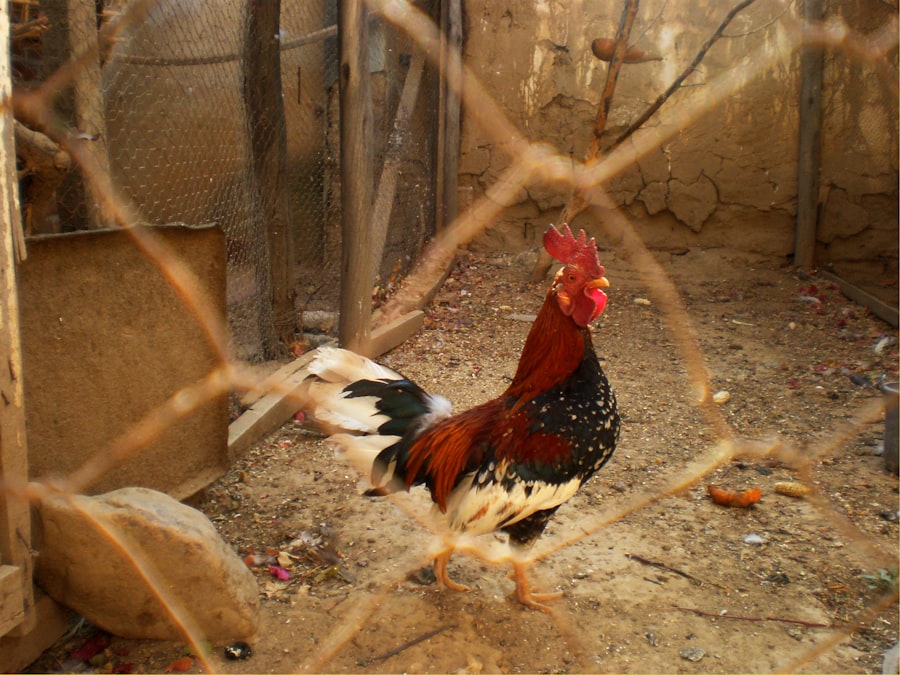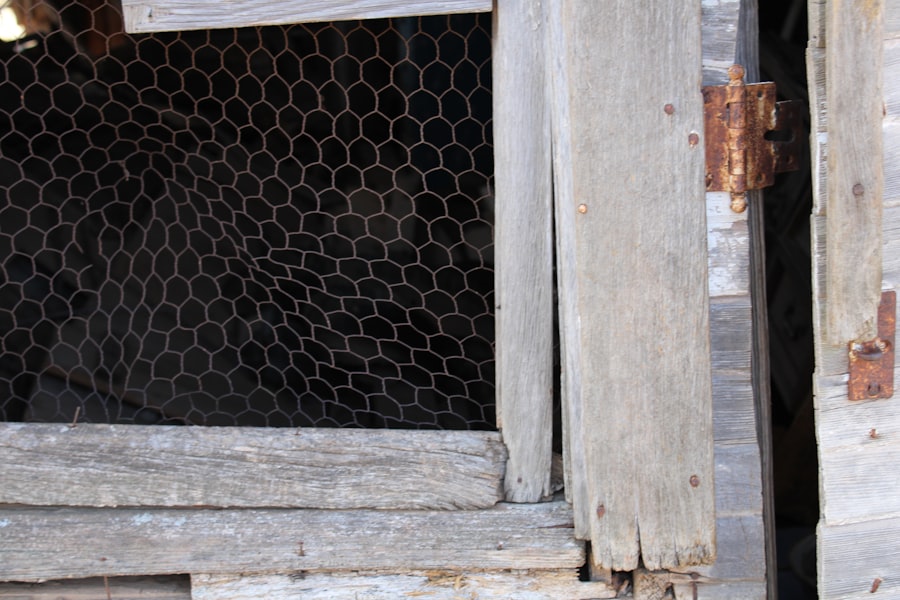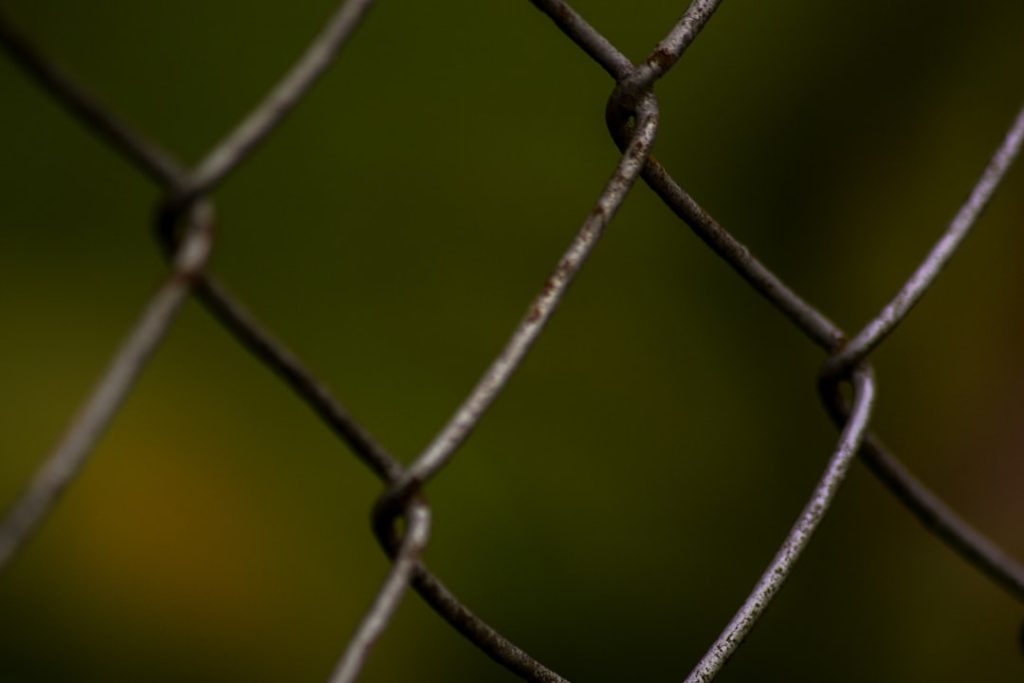Chickens exhibit natural curiosity and opportunistic behavior, constantly exploring their environment for food and shelter. They are easily startled, which can result in sudden movements like flying or running. Understanding these innate characteristics is essential for effective management and control of their movements.
By recognizing their natural tendencies, one can better anticipate chicken behavior and implement appropriate containment measures. As social animals, chickens typically move in flocks, relying on each other for safety and guidance. When one chicken discovers a new food source or shelter, the rest of the flock is likely to follow.
This social dynamic allows for more accurate prediction of their movements, enabling proactive measures to prevent access to undesired areas. Comprehending chicken behavior is crucial for developing effective strategies to keep them away from specific locations.
Table of Contents
- 1 Creating Physical Barriers
- 2 Using Natural Deterrents
- 3 Implementing Scare Tactics
- 4 Providing Alternative Food Sources
- 5 Training Your Chickens
- 6 Seeking Professional Help
- 7 FAQs
- 7.1 What are some effective ways to keep chickens out of my garden?
- 7.2 What types of fences are best for keeping chickens out of the garden?
- 7.3 Are there any plants that can help deter chickens from entering the garden?
- 7.4 How can I create alternative foraging areas for my chickens to keep them out of the garden?
- 7.5 Are there any humane methods for keeping chickens out of the garden?
Key Takeaways
- Chickens are naturally curious and will explore their surroundings, so understanding their behavior is key to effectively deterring them.
- Physical barriers such as fences and netting can be effective in keeping chickens out of certain areas.
- Natural deterrents like citrus peels, garlic, and hot pepper can be used to repel chickens from specific areas.
- Scare tactics such as motion-activated sprinklers or noise-making devices can startle chickens and discourage them from entering certain areas.
- Providing alternative food sources away from the areas you want to protect can help redirect the chickens’ attention.
- Training chickens to respond to certain cues or commands can help manage their behavior.
- If all else fails, seeking professional help from a veterinarian or animal behaviorist may be necessary to address persistent chicken behavior issues.
Creating Physical Barriers
Fencing as a Deterrent
For example, if you want to keep chickens out of your garden, you can install a fence around the perimeter to deter them from entering.
Netting and Mesh Barriers
Additionally, using netting over plants or crops can also prevent chickens from causing damage. Another option for creating physical barriers is to use chicken wire or mesh to block off access to certain areas. This can be particularly useful for keeping chickens out of flower beds or other delicate areas where they may cause damage.
Effective Control of Chicken Movement
By creating physical barriers, you can effectively control the movement of chickens and prevent them from accessing areas where they are not wanted.
Using Natural Deterrents

In addition to physical barriers, natural deterrents can also be effective in keeping chickens away from certain areas. For example, using strong-smelling plants such as lavender or mint can deter chickens from entering specific locations. Chickens have a strong sense of smell and are often put off by strong odors, making these plants an effective natural deterrent.
Another natural deterrent is the use of predator decoys, such as fake owls or hawks. Chickens are naturally wary of predators and will often avoid areas where they believe a threat is present. By strategically placing predator decoys in areas where you want to keep chickens away, you can effectively deter them from entering.
Implementing Scare Tactics
Scare tactics can also be effective in keeping chickens away from certain areas. This can include using noise-making devices such as wind chimes or bells to startle chickens and discourage them from entering specific locations. Additionally, using motion-activated sprinklers or lights can also startle chickens and prevent them from accessing certain areas.
Another scare tactic is the use of visual deterrents such as reflective tape or shiny objects. Chickens are easily startled by sudden movements or bright lights, making these visual deterrents effective in keeping them away from specific locations. By implementing scare tactics, you can effectively control the movement of chickens and prevent them from causing damage in certain areas.
Providing Alternative Food Sources
One way to keep chickens away from certain areas is by providing alternative food sources in a different location. Chickens are often drawn to areas where they can find food, so by offering a separate feeding area away from the location you want to protect, you can effectively divert their attention. This can be achieved by setting up a designated feeding station with a consistent supply of food to keep chickens occupied and away from sensitive areas.
Another option is to scatter food in a different location to encourage chickens to forage elsewhere. By providing an alternative food source, you can redirect their focus and prevent them from causing damage in specific areas. Overall, providing alternative food sources is a proactive way to manage the movement of chickens and keep them away from sensitive locations.
Training Your Chickens

Positive Reinforcement Techniques
By using positive reinforcement techniques, such as rewarding good behavior with treats, you can teach your chickens to avoid specific locations. For example, by consistently rewarding them for staying out of your garden, you can encourage them to associate that area with positive reinforcement and learn to stay away.
Deterrent Sounds and Signals
Another training method is to use deterrent sounds or signals to discourage chickens from entering specific locations. For example, using a whistle or clapping your hands when chickens approach sensitive areas can help them learn to associate those sounds with negative consequences and avoid those locations in the future.
Effective Behavior Management
By training your chickens, you can effectively manage their behavior and prevent them from causing damage in certain areas.
Seeking Professional Help
If you have tried various methods to keep chickens away from certain areas without success, it may be time to seek professional help. A professional animal behaviorist or poultry expert can provide valuable insight and guidance on how to effectively manage the behavior of chickens and keep them away from sensitive locations. They can assess the situation and recommend tailored strategies based on the specific needs of your flock and property.
Additionally, professional help may also involve implementing more advanced techniques such as electronic fencing or sound-based deterrent systems. These methods can be highly effective in controlling the movement of chickens and preventing them from accessing specific areas. By seeking professional help, you can gain access to specialized knowledge and resources that can help you effectively manage the behavior of your chickens and keep them away from sensitive locations.
In conclusion, understanding the behavior of chickens is essential in developing effective strategies for keeping them away from certain areas. By creating physical barriers, using natural deterrents, implementing scare tactics, providing alternative food sources, training your chickens, and seeking professional help, you can effectively manage their behavior and prevent them from causing damage in sensitive locations. With the right approach and consistent effort, you can successfully control the movement of chickens and create a harmonious coexistence with these curious and opportunistic creatures.
If you’re looking for ways to keep chickens out of your garden, you may also be interested in learning about where to put a chicken coop. This article from Poultry Wizard offers valuable tips on finding the best location for your coop to ensure the health and safety of your chickens. Check it out here for more information on creating a suitable environment for your feathered friends.
FAQs
What are some effective ways to keep chickens out of my garden?
Some effective ways to keep chickens out of your garden include using physical barriers such as fences or chicken wire, using natural deterrents like plants with strong scents or textures that chickens dislike, and providing alternative areas for the chickens to forage.
What types of fences are best for keeping chickens out of the garden?
Fences with small gaps or openings, such as chicken wire or hardware cloth, are effective at keeping chickens out of the garden. It’s important to ensure that the fence is tall enough to prevent the chickens from flying over it.
Are there any plants that can help deter chickens from entering the garden?
Plants with strong scents or textures, such as lavender, rosemary, or prickly bushes, can help deter chickens from entering the garden. These plants can be strategically placed around the perimeter of the garden to create a natural barrier.
How can I create alternative foraging areas for my chickens to keep them out of the garden?
Creating alternative foraging areas for chickens can help keep them out of the garden. This can be done by designating a specific area of the yard for the chickens to forage, providing them with plenty of space, and ensuring that they have access to food, water, and shelter in that area.
Are there any humane methods for keeping chickens out of the garden?
Using physical barriers, natural deterrents, and providing alternative foraging areas are all humane methods for keeping chickens out of the garden. It’s important to avoid using any harmful or inhumane methods, such as trapping or harming the chickens.
Meet Walter, the feathered-friend fanatic of Florida! Nestled in the sunshine state, Walter struts through life with his feathered companions, clucking his way to happiness. With a coop that’s fancier than a five-star hotel, he’s the Don Juan of the chicken world. When he’s not teaching his hens to do the cha-cha, you’ll find him in a heated debate with his prized rooster, Sir Clucks-a-Lot. Walter’s poultry passion is no yolk; he’s the sunny-side-up guy you never knew you needed in your flock of friends!







